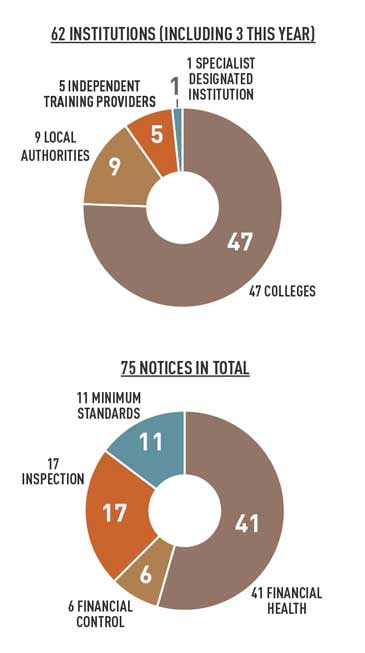Andrew Harden can trace his activism back to a life-changing experience at school in Australia, when he led collective action with classmates that put a stop to a bully’s reign of terror.
It was a Eureka moment that has served the now head of FE at the University and College Union (UCU) well throughout his life.
“When I was in year nine, there was a particular class, and there was a kid in this class that was bullying everybody, basically,” he recalls.
“The teacher was doing nothing about it, so, at the age of 14, I organised for the rest of the class to go to the library and sent a note to the teacher to say we’re not coming back until it was sorted out. It was.”
The oldest of four children, Harden was born in 1970, nine months after the moon landing — he jokes about being a “moon baby” — in the small town of Balaklava, South Australia.
“It was a conservative town when we moved in, and in Australia voting is compulsory, so when the votes were being counted there were two extra Labour votes and they could tell it was mum and dad,” he says.
Harden first courted controversy at the tender age of five.
Look, I’ve got 40
angry blokes out
there with chainsaws
On his first day at Balaklava Primary School, Harden was taken to the school library and asked what book he wanted to read.
He shocked his teachers by asking for a book on how to make babies.
“So, in 1975, an hour and a half north of Adelaide, in a conservative farming community, they didn’t have such a book. They went on to have a staff room vote later that day, and decided not to get one.”
Harden was fascinated by politics from an early age.
He was nicknamed “Mr Prime Minister” by classmates, even before the incident with the class bully, and got involved with the Nuclear Disarmament Party aged around 15.
His formative experience of bad management practice and trade union representation came while Harden studied politics at the University of Adelaide.
“I had a part-time job at a department store at weekends and summer holidays selling computers, and in Australia at the time, on the day you turned 21, you would receive adult wages,” he recalls.
“But they actually rang me and left a message on my 21st birthday saying that I was no longer required and no longer rostered on — it was unbelievable.”
“Fortunately, the union stepped in and got me more rostered hours,” he says. “But it was quite clear that I was on my way out of there, so I learned a few lessons.”
Harden moved to an administrative role at the Federated Furnishing Trade Society soon after.
Then, he recalls, “by the time I was 25, the Australian Council of Trade Unions was basically training young people to be union officials and trade union organisers”.
“I applied and got a position with New South Wales Timber Workers’ Union, which meant going from an administrative role to actually being an official, and it was a 12-month traineeship, so that was quite a change,” he adds.
It meant “going into quite isolated communities where there’s like one pub, one major employer, which was the timber mill, one shop, and one school,” he recalls.
“You were being called in because the boss wanted to sack one of the workers,” Harden adds.
It meant having “a conversation with the boss when you say, ‘Look, I’ve got 40 angry blokes out there with chainsaws. You drink in the same pub. Your kids go to the same school. Are you really sure you want to do this?’”
Harden moved to London after two and a half years in that demanding post “for love”, he says, in 1997.
Any culture shock he might have felt on arrival — “somebody should tell you when you come through border control, that [TV hosts] Richard and Judy are an item” — was eased by knowledge that his skills and experience had left him well-placed to secure work with British trade unions.
His first job in this country was representing print workers through the Graphical, Paper and Media Union (GPMU) — which involved the unenviable task of opposing cuts enforced by media mogul Rupert Murdoch, whose empire had started in Harden’s home town of Adelaide.
“It was a bit like saying, ‘I’m from Adelaide, but I’m here to try and make up for it’,” Harden quips.
Nonetheless, he discovered that union organising in the UK was easier than back home.
“Trying to get people to join the union and do something about it in Australia is much harder, because if they’ve had a bad day at work and they’re pissed off, they go and have a lie on the beach and they feel a lot better.
“But over here, the weather is so miserable that there’s no feeling better about it,” he says.
Harden became the national official for FE at the National Association of Teachers in Further and Higher Education in 2005 — the predecessor to the UCU.
Although this was his work FE job, it wasn’t his first FE experience.
That had come when he was younger, through his mum Gaye’s job teaching dressmaking back in Australia.
Most of the people his mum taught were women on “their first foray into the outside world from being a mother or that kind of thing,” Harden says.
“For some of them, it meant they had the confidence to get out of abusive relationships and things like that. I remember thinking ‘this really makes a difference’. So it feels quite good that I have been able to be here at this time and hopefully help someone in FE.”
He speaks with obvious pride about his involvement in the UCU’s work on lesson observations, which he describes as a “different approach”.
“It was evidence-based, we got the research done and it actually shifted things,” he says. “I guess we realised if you’re going to change to ungraded lesson observations, you can’t just take the grades away and think that’s the job done; there’s actually a whole cultural change around it.”
Harden remains as committed to the sector as ever after 11 years in the post.
He says: “People don’t choose to work in FE to not deliver quality. They have chosen FE because they believe in its transformative qualities, and it’s actually heart-breaking for a lot of our members to not be able to do the extra.”
Click on the image for a larger version

It’s a personal thing
What’s your favourite book?
Jonathan Livingston Seagull, by Richard Bach. It’s not just about a bird, but it is. It’s a story told through this bird that gets ostracised from the flock because he was spending too much time on perfecting flight, finding out how fast and how far he could go, and loops and all this kind of stuff, which was just seen as weird and odd and different. I picked up on its message growing up, which was, you know, don’t be afraid to be different, and when you know you’re onto something and you know you’re right, don’t be afraid — be who you are.
What do you do to switch off from work?
Music, eating out and city breaks. You can’t spend a weekend in Verona from Sydney
What’s your pet hate?
People who think, as they are leaving a tube station, that it’s a good time to read a text or text someone, and they have no regard for the hundreds of people behind them. Where do they think we all went? I think that makes me a real Londoner now
If you could invite anyone to a dinner party, living or dead, who would it be?
Gough Whitlam [Australian prime minister who introduced free education in the 1970s]. There was a great Aussie band called The Whitlams named after him. I think George Orwell, though it might be a bit depressing. But then I wouldn’t mind having Frida and Agnetha [from Abba]. When I was growing up in Australia, Abba were bigger than The Beatles.
Curriculum vitae
1970: Born in Balaklava, South Australia
1975: Started at Balaklava Primary School
1983: Started at Gawler High School, South Australia
1990: Began a politics degree at University of Adelaide
1991: (Part –time while studying) Administrator role for the Federated Furnishing Trade Society, Adelaide, South Australia
1995: First union official role at the New South Wales Timber Workers’ Union, part of Australia’s Construction, Forestry, Mining and Energy Union, Sydney
1997: Moves to the UK
1998: Starts role at the Graphical, Paper and Media
Union as Organiser, Deputy Head of Organising and Elected Regional Official
2005 – present: Initially National official for FE at National Association of Teachers in Further and Higher Education, UCU’s predecessor union. Now UCU Head of FE







